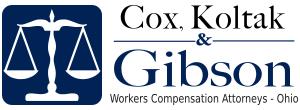Explaining the Process of Filing a BWC Claim in Ohio
Filing the First Report of Injury
If you have seen a physician for a , chances are your managed care provider has already completed this paperwork for you. Contact the BWC directly to check to see if your MCO filed a claim. If your MCO didn’t file a claim, an employee or their representative can either complete the First Report of Injury form manually and mail it directly to the BWC office or complete and submit the form electronically. This form is known as a FROI.
Check the Claim’s Status
Once your claim if filed, you can look up the status electronically, via your social security number. If questions arise, or employees become confused about any aspects of their claims, they should contact any of the qualified to answer their questions and represent their best interests.
The Determination
The BWC Ohio must render a determination to allow or deny any claim 28 days after receiving the First Report of Injury Form. If the BWC allows the claim, employees or their representatives may be eligible for compensation for any work-related medical bills and treatment, payment of temporary compensation for your out-of-work days, partial disability for residual impairments, permanent disability if the injury precludes an employee from working and lump-sum settlement awards.
Filing an Appeal
If the BWC disallows the claim, the applicant has 14 days to file an appeal. Denied injured workers can file online or electronically. Our Columbus Ohio Workers’ Compensation Attorneys are experienced in filing BWC appeals in Ohio and can make sure your information is accurate and complete, to increase the chances an appeal will be successful.
Statute of limitations for Filing
Be aware that there is a statute of limitations on claim filing. Anyone or their representative who has a work related injury or disease claim has to file their claim as following.
§ 5.3 Claims for Occupational Diseases
Revised Code § 4123.85 proscribes the limitations and notice requirements governing occupational disease claims.
In all case of occupational disease, or death resulting from occupational disease, claims for compensation or benefits shall be forever barred unless, within two years after the disability due to the disease began, or within such longer period as does not exceed six months after diagnosis of the occupational disease by a licensed physician or within two years after death occurs, application is made to the industrial commission or the bureau of workers’ compensation or to the employer if he is a self-insuring employer.
§ 5.2 Claims for Injury or Death
Revised Code § 4123.84 prescribes the limitation and notice requirements governing claims arising from injury or death:
(A) In all case of injury or death, claims for compensation or benefits for the specific part or parts of the body injured shall be forever barred unless, within two years after the injury or death:
(1) Written notice of the specific part or parts of the body claimed to been injured has been made to the industrial commission or the bureau of workers’ compensation;
(2) The employer, with knowledge of a claimed compensable injury or occupational disease, has paid wages in lieu of compensation for total disability;
(3) In the event the employer is a self-insuring employer, one of the following has occurred:
(a) Written notice of the specific part or parts of the body claimed to have been injured has been given to the commission or bureau, or the employer has furnished treatment by a licensed physician in the employ of an employer; provided, however that the furnishing of such treatment shall not constitute a recognition of a claim as compensable, but shall do no more than satisfy the requirements of this section;
(b) Compensation or benefits have been paid or furnished equal to or greater than is provided for in sections 4123.52, 4123.55 to 4123.62, and 4123.64 to 4123.67 of the Revised Code.
(4) Written notice of death has been given to the commission 23 or bureau.
The Bureau must provide employers and employees with printed notices quoting the language of R.C. § 4123.84(A) in full. 22 Every self-insured employer must also post and maintain at all times one or more of such notices in conspicuous places in the workshop or place of employment. 22
Compliance with the limitation provisions of the statute therefore requires the giving of written notice of the body parts claimed to have been injured within two years after the injury. Similarly, R.C. § 4123.84(A)(4) requires the giving of written notice of death to the Commission or Bureau. It is not necessary to file a death claim within two years of the date of death; it is only necessary to provide written notice of the death itself.23
Revised Code § 4123.84(A)(3) makes an exception to the running of the limitations period claim against self-insured employers. This exception tolls the running of the period of limitations when the self-insured employer has furnished the claimant with treatment by a licensed physician in the employ of the employer or has paid compensation or benefits equal to or greater than those available under applicable sections of the workers’ compensation statue. The General Assembly added the provision concerning “treatment by a licensed physician” in 1978 24 in response to a case in which the Ohio Supreme Court held that treatment by a salaried physician in the employ of a self-insured employer did not constitute a medical benefit and therefore did not operate to toll the running of the period of limitations.25 Even though treatment furnished by a licensed physician in the employ of an employer satisfies the requirements of R.C. § 4123.84,(A)(3)(b), “benefits” means payment by a self-insured employer to or on behalf of an employee for a hospital bill, a medical bill submitted by a licensed physician or hospital, or an orthopedic or prosthetic device. 27 A claimant’s receipt of insurance benefits under a non-occupational accident and sickness policy does not constitute the payment of benefits within the meaning of R.C.

